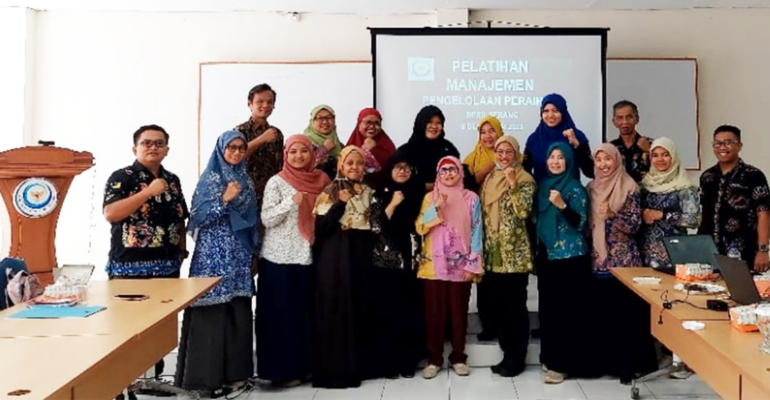Implementation of Cooperation, IPB Professor Presents Limnology and Aquatic Productivity Materials at BPKIL Serang

The Department of Aquatic Resource Management (MSP) of the Faculty of Fisheries and Marine Science (FPIK), Prof Niken TM Pratiwi and the Fish Health and Environmental Testing Centre (BPKIL) Serang organised an Aquatic Management Training. This activity is one of the manifestations of the Cooperation Agreement (PKS) between the two parties. In the event, Prof Niken was accompanied by Aliati Iswantari, SPi, MSi.
The theme was ‘Limnology and Aquatic Productivity: The First Step in Improving Understanding of the Basics of Aquatic Science for Aquatic Management’. The training was attended by several technical implementation units (UPT) within the Directorate General (DG) of Marine Spatial Management and the Directorate General of Aquaculture, Ministry of Maritime Affairs and Fisheries (KKP) RI, including UPT from Mandi Angin, Labuhan, Sukabumi and Serang areas.
The presentation began with a description of the typology and characteristics of aquatic ecosystems, various types and roles of aquatic biota, productivity, the process of fertilisation or eutrophication and water pollution, to the principles and rules of aquatic resource management.
The discussion that developed not only included sampling techniques for sediment, water and aquatic biota, such as bacteria, plankton and benthos, but also the analysis of determining the status of eutrophication and pollution of waters, as well as approaches to the utilisation of aquatic space for various fisheries activities.
Chairman of the MSP Department of IPB University, Prof Hefni Effendi said that scientific activities in the form of such training are very good for enriching the knowledge developed in the academic world about limnology and water productivity for all research staff at KKP. Aquatic productivity can be an illustration of the extent to which the health and performance of the aquatic environment can support the life of aquatic biota.
“The cooperation will continue with the organisation of further training, joint research, and the application of Merdeka Belajar Kampus Merdeka (MBKM) through student internships in the BPKIL environment. Through the collaboration, both parties will benefit, both in terms of scientific development and strengthening human resources,” he said.
On the other hand, the Chairman of BPKIL Serang, Drh Toha Tusihadi, welcomed this training activity. He said this was in line with one of BPKIL’s strategic roles as a national reference laboratory whose scope includes preparing test methods, confirmative testing (diagnostics), implementing proficiency tests and biorepository laboratories. The tasks and functions of BPKIL are testing fish diseases, fish medicine, residues, fish feed and aquaculture environment. (*/Rz) (IAAAS/RUM)



